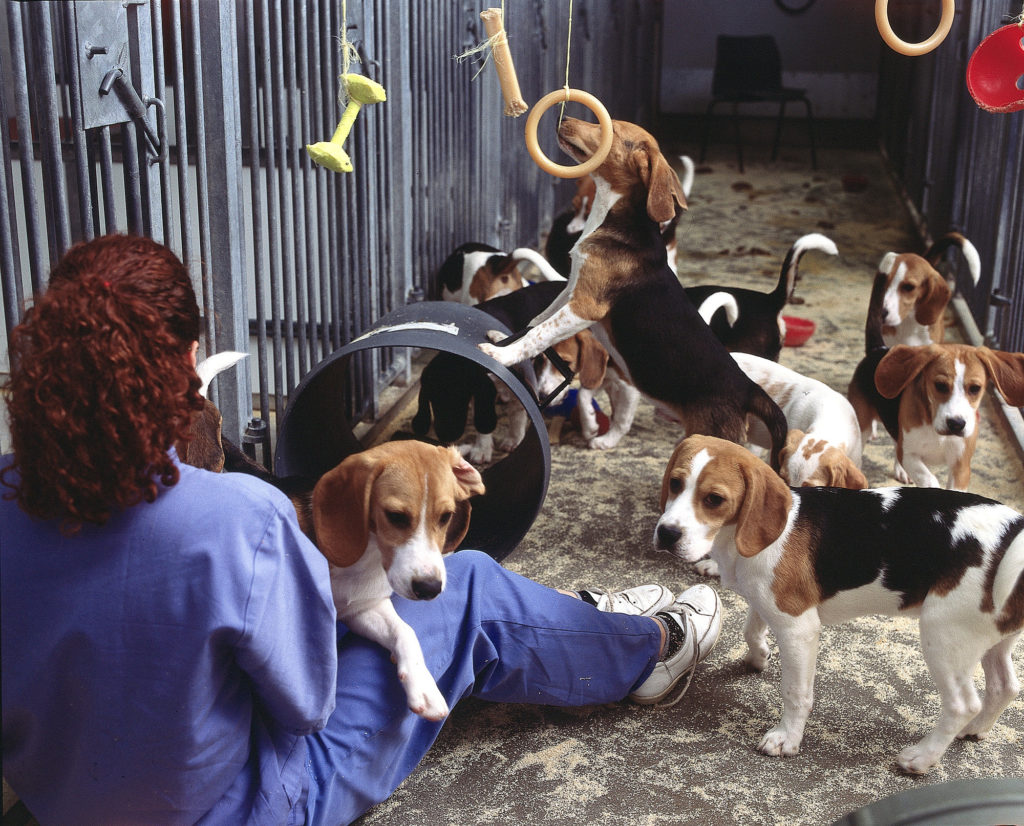In a letter to M. Roy Wilson, MD, president of Detroit’s Wayne State University, the Physicians Committee for Responsible Medicine—a national non-profit of 12,000 doctors—urged the immediate adoption of all dogs used in the university’s infamous heart failure experiments. The letter details the extreme and painful conditions and interventions the dogs are subjected to and reviews the lack of scientific knowledge that has been gleaned from the experiments over the past 29 years.
On March 25th, Wayne State announced that “all research activities and support should now be enabled remotely and any on-site operations paused at minimal operational level.” Considering this plan, Physicians Committee director of academic affairs John Pippin, MD, FACC, expressed concern to President Wilson: “For the dogs used in your university’s experiments this could mean languishing in cages with surgical wounds and cables and wires protruding from their bodies, or it could mean that your employees intend to kill those animals.”

Since 1991, Wayne State has subjected hundreds of dogs to numerous surgeries each, during which devices are implanted into their hearts and near major blood vessels. Surgically implanted electrodes increase the dogs’ heart rates to the point of heart failure, and clamps are placed to restrict blood flow to the kidney, causing hypertension. To control these devices and to collect data, as many as nine cables and wires are “tunnelled” between the dogs’ shoulder blades. These dogs are then forced to run on treadmills as experimental data is collected. According to official Wayne State records, as many as 25% of dogs are expected to die during or shortly after the procedures, before the data collection period begins. Dogs who do survive the initial surgeries are experimented on until they die as a result of these stresses.
After nearly three decades of research and $11.6 million from the National Institutes of Health (NIH), the experiments have resulted in no new treatments or knowledge about heart failure or hypertension. In contrast, human-based studies, including epidemiological studies, cell-based and computer-based research methods, donated human organs, and human clinical trials, have resulted in major medical findings.
“While the COVID-19 pandemic is having an enormous negative impact,” Dr. Pippin wrote, “Wayne State University should use this opportunity to do something that would save the lives of dogs and benefit humans.”
Please help amplify our message by writing to the president of Wayne State today.
Featured image: a dog looks out from a kennel in a shelter. Image credit Allen Park, CC BY-SA 2.0.





